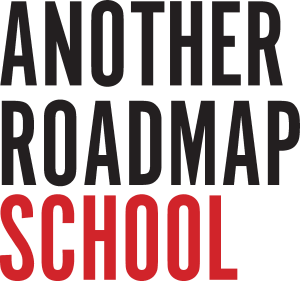The Wits School of Arts has been involved in the
Another Roadmap
project since February 2012 when David Andrew attended the introductory conference at the Ontario Institute for Studies in Education at the University of Toronto, Canada. Since then, two workshops have taken place in June and August 2012 at the University of the Witwatersrand, Johannesburg, to discuss
Another Roadmap
with various stakeholders from the Wits School of Arts (WSOA), the Visual Arts Network of South Africa (VANSA), the University of South Africa (UNISA), the University of Johannesburg (UJ) and other institutions.
Participants at these workshops have included the following: David Andrew (WSOA), Kennedy Chinyowa(WSOA), Munyaradzi Chatikobo (DFL), Tim Kraft (independent practitioner), Joseph Gaylard (VANSA), Zen Marie (WSOA), Gabi Ngcobo (WSOA), Natasha Christopher (WSOA), Brenden Gray (UJ) and Stacey Vorster(WSOA).
Another Roadmap
has also been the subject of discussions at steering committee meetings for the
Arts Education in Africa – towards Policies and Practices
research project. This steering committee comprises representatives from a number of organisations, including the Goethe-Institut, Johannesburg, the African Union-NEPAD Education desk and the Arterial Network. The potential intersecting of these projects, particularly with regard to the identifying of more radical arts education models in African contexts, is one which we seek to foster.
The Wits School of Arts will be involved in the following research activities which directly contribute to the global project:
1. An in-depth account of the histories of arts education in South and Southern Africa towards the goal of proposing alternative practices at primary, secondary and tertiary levels. The initial phase of this project has involved compiling a comprehensive literature review of existing material including journal and magazine articles, books, curriculum documents, policy documents and interviews. At the same time, the research group acknowledges that there is much material that does not exist in written form that remains critical to this project. Following this initial phase, the research group aims to surface how arts education has come to exist in the form it does, in the southern African context. Here we are interested in how models of arts education have migrated from other locations and found purchase here. Examples include, but are not limited to the South Kensington, Bauhaus, Black Mountain and Reggio Emilia “systems”. In addition, we give attention to how Christian National Education and Fundamental Pedagogics have impacted arts education. People’s Education, and more specifically the Medu Ensemble, are included in the study as models that remain pertinent to a reconceptualising of arts education and a “speaking back” to, and “with”, the migrated models. In doing this, we problematise notions of “arts education” and “the school”.
2. A linking of the
Another Roadmap
critique of the
UNESCO Road Map for Arts Education
to an arts education policy formulation process being undertaken by the Visual Arts Network of South Africa (VANSA) for the Gauteng Provincial Department of Education, South Africa. This is linked to one of the key questions raised in the 2012 workshop meetings around how the
Another Road Map
process becomes engaged in
practices
. Here we aim to directly impact policy decisions relating to arts education in the province.
3. A series of short-term projects involving cohorts of Wits School of Arts Fine Arts students in an active and critical engagement with the
UNESCO Road Map for Arts Education
document with the view to producing practices which engage school and community teaching and learning environments in and around Johannesburg, South Africa.
4. The identification of case studies which supplement the major histories of arts education research project and offer examples of alternative models for arts education. The primary case study will be that of the Drama for Life programme at the Wits School of Arts. Other case studies include the Keleketla Library “after school” project based at the Drill Hall in Johannesburg, and the Market Photo Workshop project in Newtown, Johannesburg.
